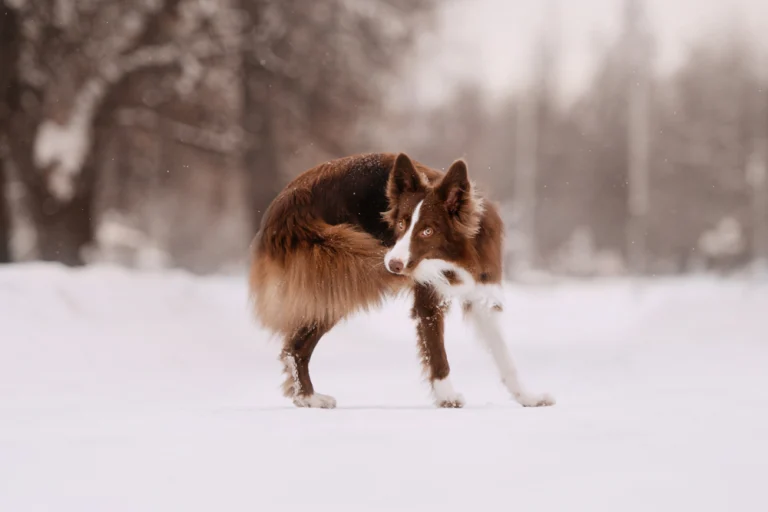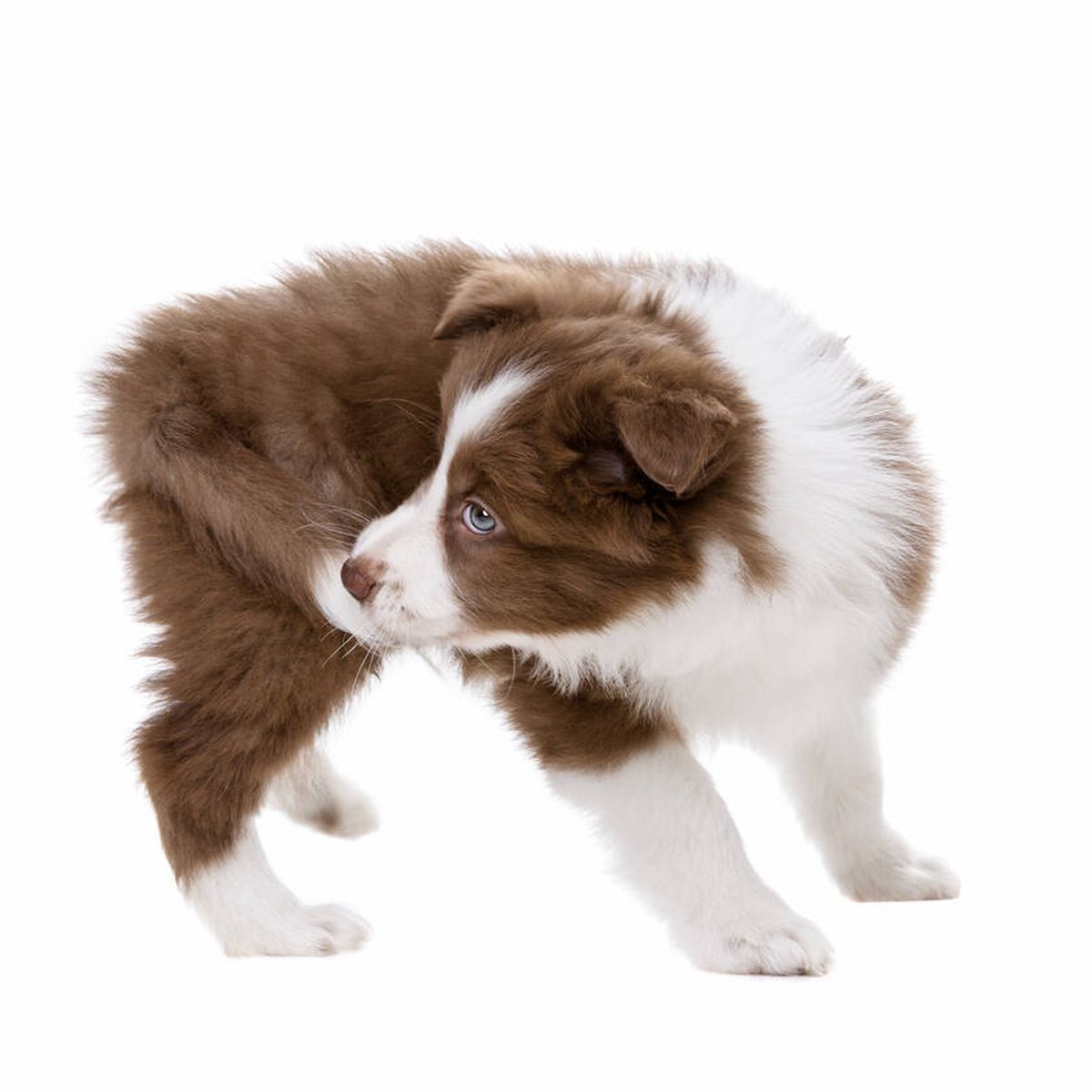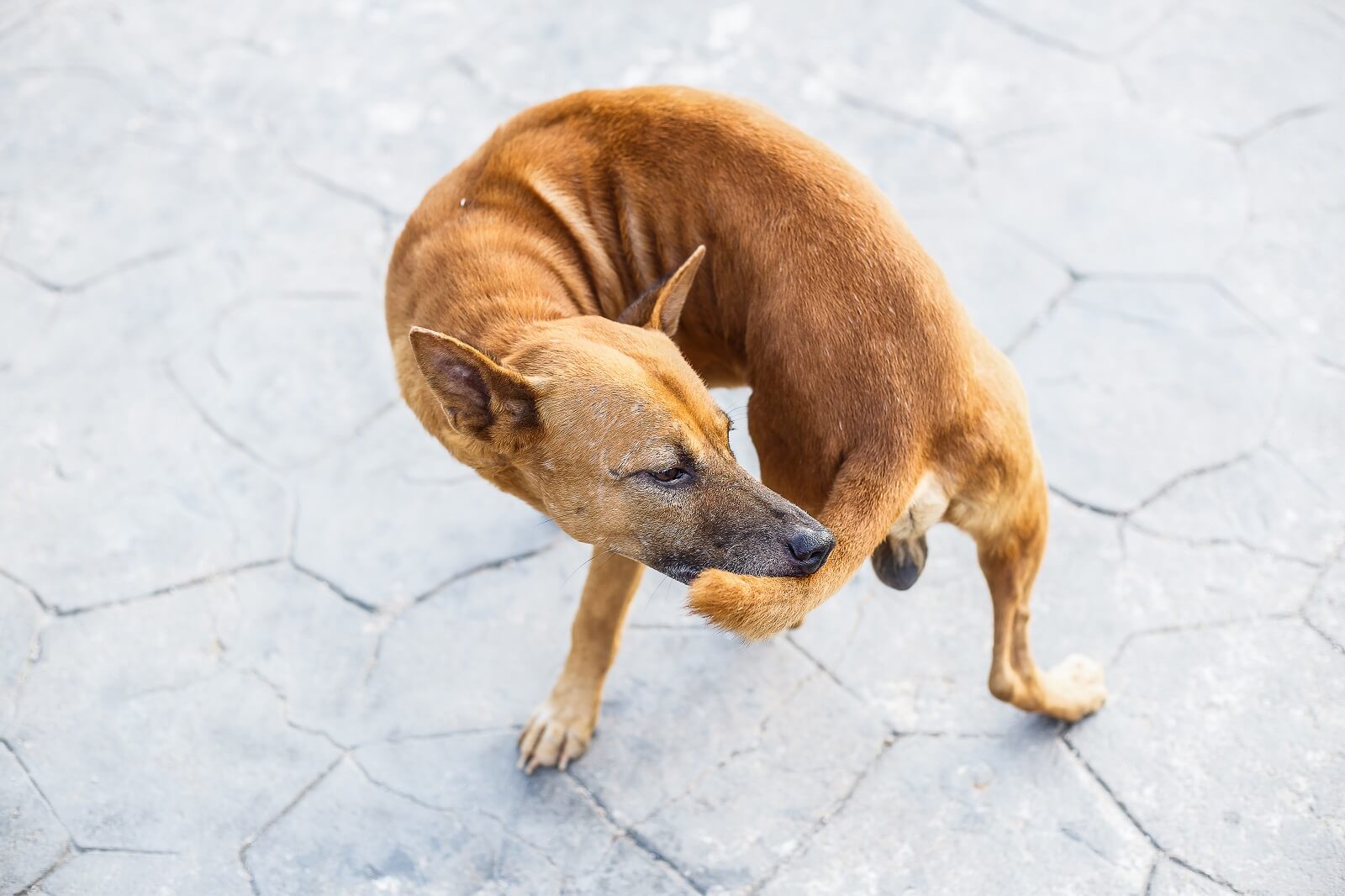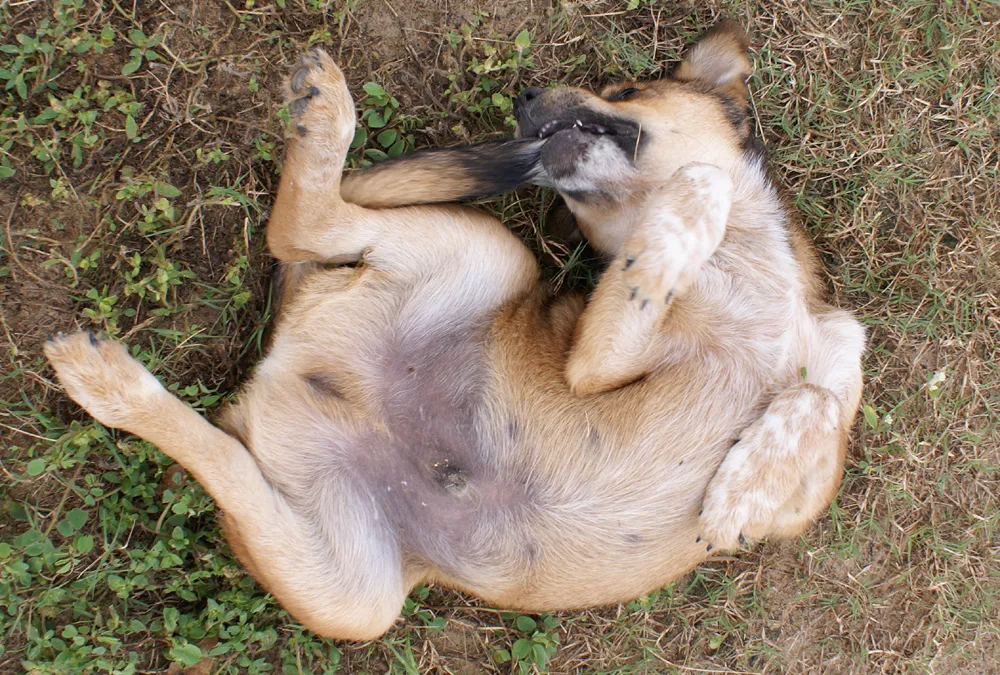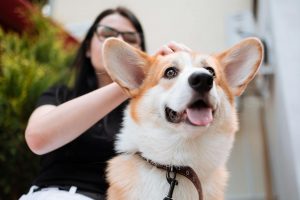Any dog owner will tell you. Dogs can sometimes do some weird things. For example, biting their tails, chewing their butts, licking their reproductive organs, and so on. Why do they do that? As a prospective dog owner or someone who already owns a dog, you probably want to know all about the dog’s tail-biting compulsive behavior.
Why do dogs bite their tail? Turns out, there are a lot of reasons for that. Some of them are medical issues, others are behavioral issues.
Let’s take a look.
Is My Dog Just Playing?
Yes, in some cases, your dog might just be playing with its tail. If you leave your dog for a long period, your puppy will get bored. And while some dogs are fine lying on the sofa or in their spot, others are not.
Sometimes, your dog might get bored even outside if they lack stimulation. So, what can your dog do to amuse itself? Well, tail chasing and tail chewing sound fun to them.
Dogs that do not get enough daily physical activity and mental stimulation often play with their tail. You can easily solve the problem by providing more exercise and mental stimulation.
Is It Age-related?
There is no difference between an older dog and a younger dog. Dogs of all ages chew their tails and bite their tails. Young puppies often do it the moment they become aware of their body parts.
For them, the tail is “this thing following me around. Let me grab it and see what it is”. For puppies, the dog’s tail is more of a toy than part of their body.
On the opposite side of the age spectrum, an older dog might chew its tail due to decreased awareness. Older dogs might not get as much stimulation, so they engage in repetitive behaviors, indicating a cognitive disorder that needs some help.
Is it Attention-seeking Behavior?
Here is a fun fact. Your dog might be chasing its tail to amuse you. Yes, people are amused when dogs chase their tails, so your dog might do it to please you.
When a dog receives positive reinforcement for any behavior, it will continue doing it. Your dog might quickly learn that chasing its tail will provide attention. So, he does it to invite you to take notice and play with him.
Why do dogs chase their tails?
There are three important factors to consider when you want to understand dog biting tail compulsive behavior. It can be your dog is doing it to have fun and be silly, because your dog is bored, or because your puppy is dealing with an underlying medical cause.
In most cases, unless it is a medical cause, you can stop the tail-biting behavior by redirecting your dog’s attention. For example, when you see a dog biting its tail, just give another command like sit.
Yet, there are situations where you have to talk to a veterinarian. Let’s take a look at some of the dog health issues that may cause this behavior.
Infected Or Full Anal Glands
Dogs have anal glands on either side of their tail area. These are the glands that release scent, which is how canines mark their territory and get to know other dogs. It is also the reason why dogs sniff rear ends when they meet other dogs.
But when these glands are full, infected, or impacted in any way, they can be painful or itchy for your dog.
Basically, your dog has impacted anal glands that need to be expressed, or in other words, popped, by your veterinarian. Now, bear in mind, not all patients require anal gland expression. They are supposed to be expressed on their own when defecating.
Parasites
In some cases of dogs biting tails, a parasite like a tapeworm, ticks, or fleas, might be the cause. The good news is that parasites can be easily prevented by keeping your puppy up to date on deworming medications.
Other symptoms of parasite infection include weight loss, swollen belly, dull coat, digestive issues, lethargy, skin infection, anemia, blood loss, flea eggs, and hair loss.
Skin Infection Or Irritation
Itchy skin is another problem your dog might have. Fleas and ticks can cause skin infections or a cut on your dog’s bottom. It may lead to irritation and even infection.
Itchiness is a problem your dog tries to solve by biting and chewing its tail.
Allergies
In some cases, a dog biting its tail is just an allergic reaction. The most common symptom of allergies is itchy skin. There can be many causes for an allergic reaction, be it food allergy, environmental allergies like pollen, or flea bites.
Talk to a veterinarian if you think your dog is allergic to something.
Foreign Material
You might be surprised, but there are many cases of something stuck in your dog’s butt. That can be poop, grass, or dirt. It is quite common for puppies to have poop stuck in their butt.
If you notice it, do remove it. Yet, we repeat, NEVER try to pull anything out of your dog’s butt. You can damage your dog’s intestines.
Anxiety
If no health problems are causing biting and chewing behavior, your dog might be dealing with a compulsive disorder. Usually, these disorders are triggered by stress. And the simple way to prevent and treat them is to de-stress your dog.
That means making sure your dog gets exercise, mental stimulation, and plenty of walks and attention during the day.
Understanding Compulsive Behaviors
Here is a secret. Some normal behaviors are the same as compulsive behaviors. The difference between normal and compulsive behavior is when the latter begins to interfere with the dog’s quality of life.
Same as people, dogs can develop compulsive habits. They are hard for them to control. And a dog experiencing anxiety might chase and bite its tail. It is the same as a person biting his or her nails.
Over time, the habit may become worse and happen more frequently.
What To Do If Your Dog Is Biting Its Tail?
In the beginning, you can see whether it is boredom, looking for fun, or it is a medical problem. If your dog is bored, simply try to improve your dog’s quality of life. That means more effective and frequent walks, more games at home, and some mental stimulation.
If, on the other hand, you are dealing with a medical problem, visit the veterinarian. For example, your vet will express your dog’s impacted glands. In most cases, that is a problem that results in the dog biting its tail.
Or if your dog is suffering from allergies, your vet can treat them with medications.
Can You Prevent This Behavior?
Yes, you can prevent dog tail-biting behavior. How? By providing a diet high in fiber. The goal is to feed your dog a diet that will prevent a loose stool.
Harder stool puts more pressure on the glands and helps them to secrete. Also, have your dog on regular flea and tick prevention.
Last, but not least, provide proper hygiene and regular grooming to prevent matted hair and infection.
When To Take Your Dog To The Vet For An Itchy Butt?
A general rule of thumb is to wait 24 hours. If the itching persists for more than 24 hours, and your dog is obsessively licking or scooting, it is time to visit the vet.
Your vet will first try to determine the cause of the itching. And depending on the severity, he will provide and suggest treatment.
And they can cost from $50 to $2000. For example, treatment for anal glands disorder range from $75 to $500. And allergy therapy can cost up to $1,500.
For this reason, a lot of dog owners decide to get pet insurance. It will help you cope with high vet bills.

